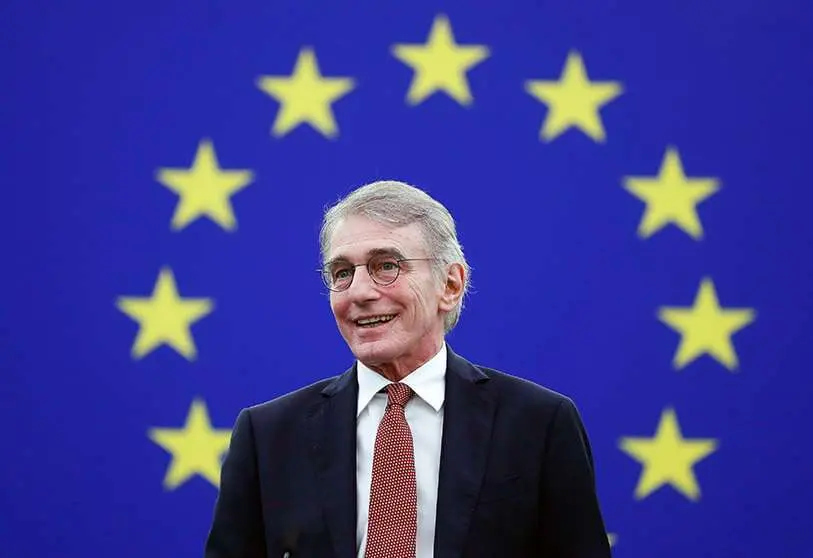Sassoli's death makes it easier to comply with stipulations

Condolences and sympathy go out to the Italian President of the European Parliament, David Sassoli, who at the age of 65 died of a serious immune system malfunction.
Sassoli, who had already overcome leukaemia and contracted pneumonia last October, had been elevated to the presidency of the European co-legislative hemicycle on behalf of the Social Democratic Group (S&D) for two and a half years, which expired this January. According to the pact concluded with the majority group in the House, the European People's Party (EPP), he was to make way for a representative of this group to complete the five years of the current legislature.
The European Socialists, probably without his explicit consent, had been circulating the idea since last November that Sassoli was good enough and capable enough to continue in office, which broke the rules of the game and irritated MEPs on the European Conservative bench. In the circles close to a parliament closed because of the pandemic, attributions of such pretensions abounded, pointing in particular to a socialist party in southern Europe. The fact that Sassoli himself never made explicit his intentions to remain in office, probably due to his delicate state of health, discouraged those who might have been preparing the corresponding arguments to justify the hypothetical rupture of the pact between social democrats and conservatives.
In any case, the House will no longer be able to enjoy the strong personality of David Sassoli, a journalist by profession, star presenter of Italian TV news, whose credibility won him the sympathy of voters in the elections to the European Parliament, and who was subsequently hailed by his peers as the most suitable candidate for the presidency of the European Parliament in 2019. Under his leadership, the debates became more intense, with more sound bites than fodder, and no topic, no matter how thorny or sensitive, was shied away from. He was aiming for a radical change in its functioning and competences, so that the European Parliament would definitively become the unavoidable legislative and supervisory power of the European institutions.
The severity of the pandemic forced him to close Parliament's premises in Brussels and Strasbourg. However, spurred on by the House's own health services, he made these premises available to people in need of assistance of all kinds, from food to health care, especially that aimed at detecting COVID-19 infection. He also made several rooms available for occupation by single, destitute women. In short, enough merits to be remembered as "a true source of inspiration for all of us", in the words of Paolo Gentiloni, European Commissioner for Economic Affairs.
This " fighter for Europe, a fierce and sincere defender of democracy and the values of the Union", will be succeeded by an EPP candidate, probably Roberta Metsola MEP from Malta, currently First Vice-President of the House and already President-in-Office following Sassoli's death. If the EPP does not present an alternative candidate at the last minute, Metsola will be definitively enthroned on 18 January. The S&D and EPP pact will therefore be fulfilled. However, many of Sassoli's great aspirations to modernise the European Parliament from top to bottom will remain unfulfilled.

